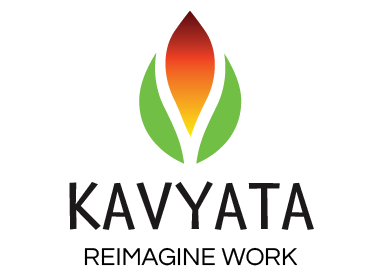
18 Dec 3 Big Ideas for your Career Development
Career development is something which every professional has to think about actively for himself/herself. Never before has it been as much the individual’s responsibility to take charge of her own career development as it is now. Here are three big ideas for your career development by which you can steer your career growth.
Keep taking stock of your Transferable Skills
When was the last time you sat down and reflected on all the skills you’ve acquired or developed in the last couple of years on the job?
And does your career story adequately reflect these transferable skills?
Let me illustrate the importance of taking stock of your skills through a story parallel.
Some days back, my son and I decided to count the money in his piggy banks – gifts from family, friends. We were in for some surprises.
First, we hadn’t realised how much had been accumulated.
Second, because we had been storing the money in different piggy banks over the years and not taking stock, we found an out-of-circulation INR 500 currency note which of course is worthless today.
Third, he had more fun counting the loose change, the jingling of the coins was exciting and they added upto an amount which he could quickly think of how to use. The larger currency notes were put back till he could find a big enough reason to spend them.
Can you see the parallels with what happens to us in our careers?
- We don’t realise how many worthwhile experiences and skills we have because we don’t pause to self-reflect.
- Not taking stock leaves us with a few outdated skills like the 500 rupee note – and when the time came to turn them in for new currency, we were napping.
- It pays (literally and figuratively) to know and market one’s transferable skills – the loose change, especially in a fast changing environment.
Watch this video to learn how to find and flaunt your transferable skills.
Read also: Invest in your Personal Brand to know how best to showcase your transferable skills
Up your Learning Game
How much time have you invested in learning in the last one week? If your answer is ‘not sure’ or iffy, you need to seriously look at prioritizing learning.
Consider this – the half-life of learned skills (the time period for which a skill remains relevant) which used to be 30 years in 1984 has fallen to 5 years if you learned these just 2 years in 2018. In the next two years – by 2022 – 42% of core skills required to perform existing jobs are expected to change. (Sources: Stephane Kasriel, CEO of Upwork and member of the World Economic Forum council & World Economic Forum– Why we need a global reskilling revolution Jan 2020)
Not just the need to learn new skills, even the effort to reskill or upskill which has gone from just 3 days, 5 years ago to 36 days on average today, or 12x as much. That’s because many of these skills are complex behavioural skills like empathetic communication which require more practice.
 Everyone needs to invest in self-learning
Everyone needs to invest in self-learning
What does this mean for your career development?
Learning today requires more investment of time and effort, while costs are being driven down by increasing access and availability. To make learning less effortful, maybe bring down the 12x to 5x times effort, means that we need to double down on finding our motivation to learn.
The most important question to ask ourselves is “Why do we want to learn something?” Having a clear answer to this is the clincher – which will keep us in the learning game.
And play this game we must, if we are to stay relevant!
Learning has to also be multi-dimensional for our career development. It can’t be only about technical skills, or about behavioural skills. It will also have to be about meta skills such as self-awareness, agility and adaptability.
3 areas we think are going to be critical where you need to up your learning game
- Flexibility and adaptability – learning cognitive and emotional agility
- Communicating your story – learning to communicate the value you bring by talking about not just what you do, but how you do it.
- Self-awareness – continuously deepening self-awareness, what your interests, aspirations and values, so that that knowledge provides a map to steer you in the face of changing circumstances
Build work around your Interests
We have just seen how skills are becoming outdated ever more quickly and how we have to therefore keep reskilling ourselves for our career development. The question arises – how do we reskill and upskill so quickly? Especially when the effort required is intense.
The answer is to be guided by our interests in choosing the kind of work we do. If we have an interest in something, we are much more likely to be able to cross the hurdles required to upskill and reskill ourselves. This is going to be very important in the future of work.
 Align skills development to your interests
Align skills development to your interests
Simply pursuing a skills program because it is the most in-demand marketable skill, without it aligning to our interests is a wrong move. This is especially so, because today, getting good opportunities requires demonstrating a high level of skill; the talent market is so fluid that if you have just a mediocre level of skill in something, then it’s going to be much harder to stand out.
On the other hand, if you align your skill development to your interests, you are likely to reach a far higher level of proficiency which makes it easier for you to cherry pick opportunities and boost your career development.
Watch how Dipankar Mukherjee has built a successful portfolio career around his diverse interests – reading, travel and entrepreneurship
- Have more talking points about oneself, a differentiating identity
- Get to know diverse people and perspectives
- Actively engage different parts of our minds-bodies leading to growth
How do you know if skill development can be aligned to your interests?
Experiment with side projects, gigs and short term opportunities to keep exploring your interests and start building your skills alongside. For instance, if you want to get into Data Science roles, after doing a certification/skilling program in Data Science, create your profile as a freelancer on sites like fiverr.com and get started with real world data science projects. That way, interests and skills can be developed simultaneously.
We also recommend criteria set down by renowned chair designer Bill Stumpf (designer of ergonomic chair Ergon made by Herman Miller), who when asked how he chose what furniture projects to work on said, “learn something, I want to make some money, and I’d like to have some fun. If the project doesn’t have the promise of satisfying at least two of these, then I don’t sign on.”
So pick up that project/ weekend activity if it ticks off at least 2 out of 3
1) you learn something
2) you make some (not tons) money
3) you have fun doing it
2 out of 3 will often lead to the 3rd one coming your way too!
In the future of work, interests and work will be deeply twined. Do more interesting things for career development in the future of work.

Kavita, an alumna of IIM Ahmedabad, brings 20 years of experience in Experiential Learning, Coaching, Personal Growth & Change. Her forte is Career Transition Coaching and Leadership Development for mid-senior individuals, helping them find success and fulfilment at work . She also teaches Career & Self Development courses at leading management institutes including IIM Kozhikode, IIM Udaipur, IIM Indore and at the IITs.

